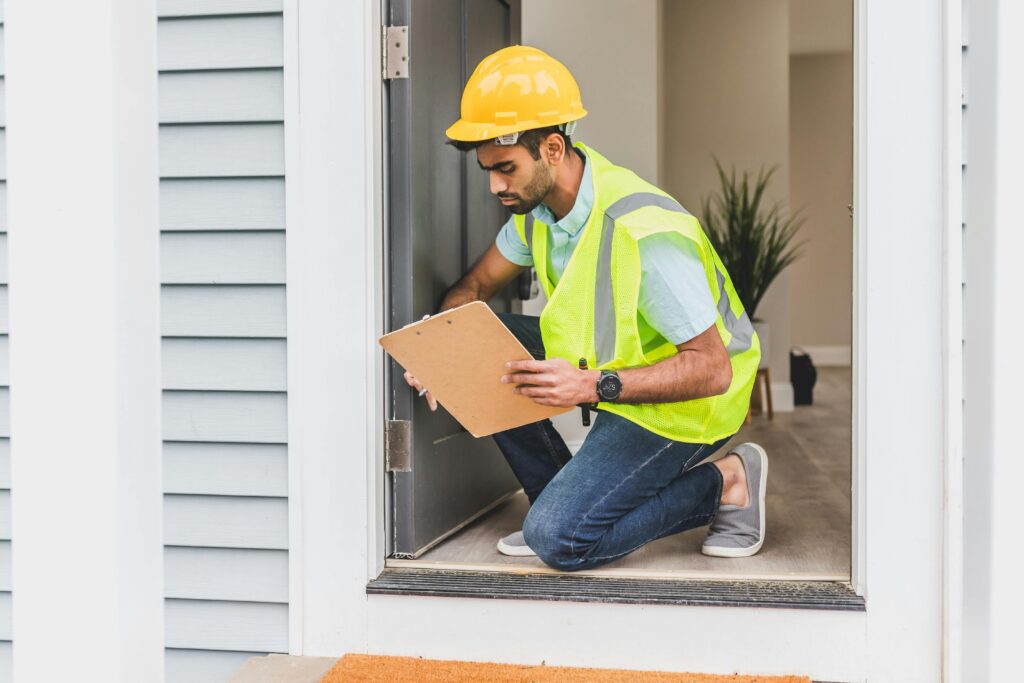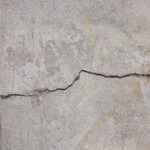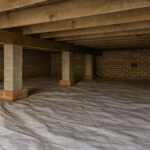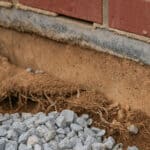Your home’s foundation supports everything above it — walls, floors, plumbing, and the overall value of your property. When cracks, settling, uneven floors, or other foundation issues start to appear, scheduling a free foundation inspection is the best way to uncover potential issues before they turn into costly repairs.
Whether you live in Staten Island or anywhere else, understanding what happens during a home foundation inspection, how to prepare, and what to expect from a licensed foundation inspector can give you real peace of mind.
Before scheduling a repair, take time to identify different types of foundation cracks — small cosmetic cracks are common, but wider horizontal ones can signal structural pressure from soil or water.
Why Foundation Inspections Matter
The foundation of your home does more than just hold it up — it protects against water intrusion, soil shifting, and structural instability. When problems go unnoticed, small cracks can evolve into serious foundation damage that threatens your home’s safety and resale value.
A thorough inspection can identify issues early on, helping you avoid costly repairs and make informed decisions about your next steps. Many foundation repair companies offer a free inspection or free estimate, which can help you understand what’s happening without any additional charge.
Common Signs You Need a Foundation Inspection
- Cracks in foundation walls, floors, or ceilings
- Uneven or sloping floors
- Doors and windows that stick or won’t close properly
- Water intrusion or poor drainage near the base of your home
- Bowing foundation walls or visible gaps in brickwork
- Separation between walls and ceilings
If you notice any of these warning signs, contact a foundation inspector or structural consultant for a comprehensive assessment. Expansive clay soil and poor drainage are leading causes of foundation problems. Learn which foundation types work best in clay soil and how to prevent movement before it starts.
Water pooling near the base of your home can erode soil and shift the foundation. See how to fix soil erosion around your foundation and design drainage systems for clay soil that move water safely away.
What Happens During a Free Foundation Inspection
A free foundation inspection is an initial, no-obligation visit to evaluate the structural integrity of your home. Reputable companies or structural engineers use professional tools and years of experience to perform accurate inspections that reveal both visible and hidden problems.
Here’s what typically happens during the inspection process:
1. Visual Assessment
The inspector examines both the exterior and interior of your home — including foundation walls, beam foundations, and crawl spaces. They’ll look for foundation cracks, gaps, and water damage.
2. Floor Level Surveys
To detect subtle settling, inspectors use specialized equipment to perform floor level surveys. This identifies dips or slopes that suggest movement in the foundation.
3. Moisture & Drainage Evaluation
Poor drainage is one of the leading causes of foundation problems. The inspector checks your gutters, grading, and nearby landscaping to see how water flows around your property.
4. Crawl Space & Basement Inspection
If your home has a crawl space or basement, the inspector checks for standing water, sagging beams, or rotted wood — all signs of structural stress or poor ventilation.
5. Documentation & Inspection Report
After the visit, you’ll receive a detailed inspection report outlining the findings, extent of the damage, and recommended next steps. Reputable inspectors provide honest feedback, helping you make decisions without pressure.
Understanding Foundation Inspection Costs
Many homeowners are pleasantly surprised to learn that foundation inspections are often free, especially when offered by foundation repair companies seeking to earn your trust.
However, the foundation inspection cost can vary depending on who performs it and the level of detail required.
| Type of Inspection | Typical Cost | Description |
|---|---|---|
| Basic Visual Inspection | Free | Offered by many companies; includes visual checks and free quotes |
| Engineering Report | $300–$800 | Performed by a structural engineer; includes load analysis and written certification |
| FHA or Real Estate Evaluation | $400–$1,000 | Required for property sales or FHA loans; includes full documentation |
| Drainage or Moisture Survey | $200–$500 | Focused on poor drainage, soil movement, or water management |
If your inspection is part of a real estate evaluation, lenders or agents may require a licensed foundation inspector or structural engineer to sign off on the report. This ensures compliance with local building codes and supports the value of your home.
Free Inspections vs. Paid Engineering Reports
A free quote or free estimate gives you a starting point — it’s great for identifying visible damage and getting an idea of repair costs. But if the situation is serious, or if you’re selling your home, a comprehensive assessment from a structural engineer provides an unbiased, detailed analysis.
When a Structural Engineer Is Needed
- You’re buying or selling a home
- Major cracks or uneven floors are visible
- You need certification for insurance or FHA loans
- Repairs exceed $10,000 in projected cost
Structural engineers are trained to evaluate the structural integrity of your home, ensuring all recommendations meet local building codes and best practices.
The Role of Foundation Inspectors and Structural Consultants
Not all inspectors are the same. A foundation inspector focuses on surface-level symptoms, while structural consultants or engineers dig deeper into causes and long-term stability.
Here’s how they differ:
| Professional | Focus | When to Hire |
|---|---|---|
| Foundation Inspector | Identifies visible problems, offers free estimates | Early stages of concern |
| Structural Consultant / Engineer | Provides certified reports, detailed analysis | Before major repairs or property sale |
| Foundation Repair Company | Provides inspection and repair quote | When you’re ready to fix identified problems |
Choosing a company accredited by the Better Business Bureau (BBB) is a good idea. This ensures you’re working with professionals who stand by their inspection process and repair solutions.
FHA Foundation Inspection Requirements
If you’re applying for an FHA loan or refinancing your home, the lender may require a foundation inspection to verify the property’s stability and compliance with federal guidelines.
Who Performs an FHA Foundation Inspection
An FHA foundation inspection must be completed by a licensed professional engineer or structural engineer familiar with HUD guidelines (specifically HUD Permanent Foundations Guide for Manufactured Housing, HUD-4930.3G).
What the FHA Inspection Covers
- Foundation Type: Verifies the home is permanently affixed to a foundation that meets FHA standards
- Anchoring & Support: Confirms the home can resist wind uplift, frost movement, and soil shifting
- Crawl Space Condition: Checks for adequate clearance, ventilation, and moisture control
- Drainage Systems: Ensures proper grading and absence of standing water
- Structural Integrity: Evaluates the beam foundation, supports, and skirting materials
The inspection report must document that the home’s foundation complies with FHA and local building codes, giving potential buyers and lenders confidence that the structure is safe and secure.
What Happens After Your Free Foundation Inspection
After receiving your report, the next step is deciding whether repairs are needed — and how soon. A professional will outline repair solutions ranging from small sealing jobs to full foundation wall reinforcement or drainage corrections.
Common Repair Recommendations
- Epoxy or polyurethane crack injections for small leaks
- Pier or pile installation to stabilize settling foundations
- Drainage system improvements (French drains, grading)
- Beam or joist reinforcement in crawl spaces
- Waterproof coatings on exterior foundation walls
Each solution is designed to provide permanent solutions, not temporary fixes. The inspector should clearly explain the extent of the damage, estimated timeline, and cost estimate for repair.
If you’re considering adding a new drain system, compare French drains vs. channel drains to find the best option for your yard and soil type.
How Free Foundation Inspections Help Homeowners
Scheduling a free foundation inspection isn’t just about fixing problems — it’s about protecting your investment.
Here’s what you gain:
1. Peace of Mind
Even if your home has minor issues, knowing the structural integrity of your home is sound can relieve stress.
2. Early Detection
Catching small foundation problems now prevents expensive repairs later.
3. Added Home Value
A clean inspection report reassures potential buyers and boosts the value of your home during resale.
4. No-Obligation Guidance
Most foundation inspectors provide honest feedback and free estimates, giving you options before you commit.
5. Compliance Confidence
When buying, selling, or refinancing, inspections ensure your property meets local building codes and lending requirements.
Questions to Ask Before Scheduling a Foundation Inspection
Before booking, do a little homework. Here are smart questions every property owner should ask:
- Is the inspection truly free?
Confirm there’s no additional charge for travel or the report. - Are your inspectors licensed or certified?
Look for credentials and years of experience. - Do you provide a written inspection report?
A detailed home inspection should include photos, notes, and recommendations. - Are you insured and accredited by the BBB?
This ensures ethical business practices and protection for homeowners. - Can I get a free quote or estimate for repairs?
Transparency in pricing helps you plan and compare options.
Foundation Inspection Tips for Staten Island Homeowners
If you live in Staten Island, your home is exposed to unique soil and weather conditions — from coastal moisture to freezing temperatures in winter. These can accelerate foundation problems if left unchecked.
Local inspectors often focus on:
- Soil movement caused by seasonal moisture
- Poor drainage from heavy rainfall or grading issues
- Basement leaks due to hydrostatic pressure
- Cracking in brickwork along older homes
Choose foundation inspectors with local experience, since they’ll know how Staten Island’s building codes and soil types affect your home’s foundation.
When to Schedule Your Next Inspection
Experts recommend a foundation inspection every 3–5 years, or sooner if you see new cracks, settling, or drainage issues. After major storms or renovations, it’s smart to request a follow-up inspection to ensure everything remains stable.
If your home was recently built or renovated, keep the first inspection report for future reference — it serves as a baseline for accurate inspections later.
Protect Your Home with a Free Foundation Inspection
A free foundation inspection is more than a marketing offer — it’s the first step in protecting the safety, comfort, and value of your home.
By partnering with a licensed foundation inspector or structural engineer, you’ll gain the knowledge to make informed decisions, comply with local building codes, and ensure the structural integrity of your home for years to come.
Whether you’re dealing with foundation cracks, poor drainage, or preparing for real estate evaluations, an inspection gives you clarity and peace of mind — all without an additional charge. For homeowners deciding between new construction options, our guide to concrete slab vs. crawl space foundations explains how design impacts moisture, access, and long-term maintenance.
Quick Summary
- Free foundation inspections help detect early warning signs of damage.
- Structural engineers offer certified, detailed assessments when needed.
- FHA foundation inspection requirements ensure your home meets federal loan standards.
- Always check credentials, experience, and BBB accreditation.
- Schedule inspections every few years or after major weather events.






Great content..
Pingback: Clay Soil Drainage Systems: Fix Waterlogged Yards
Pingback: Basement Waterproofing: Warning Signs to Watch For
Pingback: Fix Soil Erosion and Protect Your Foundation